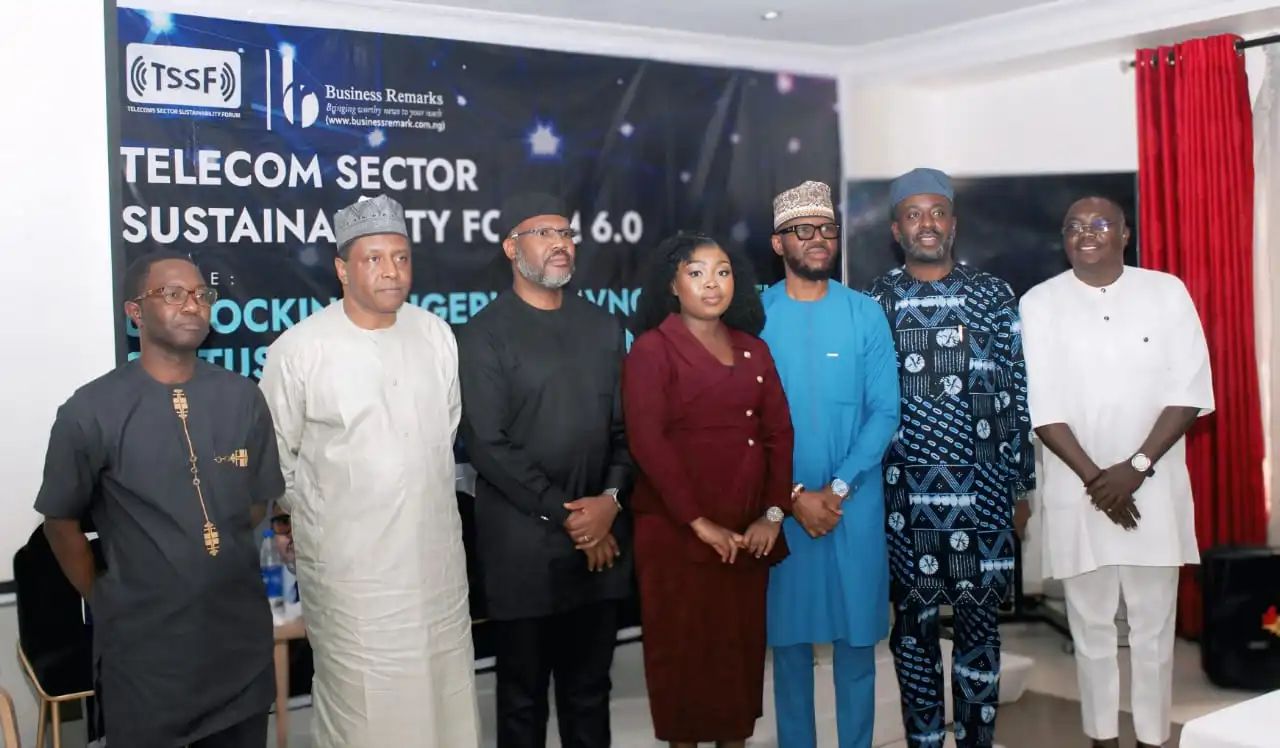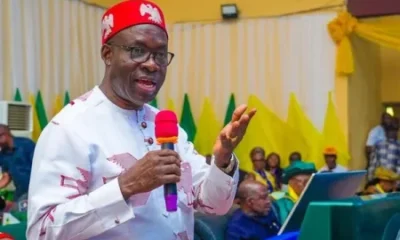Breaking News
Nigeria Telecom Lagging In $85.5bn MVNO Market Opportunity

Nigeria’s telecommunications sector stands at a pivotal juncture in its engagement with the global Mobile Virtual Network Operator (MVNO) market, valued at $85.5 billion and projected to reach nearly $142 billion by 2030.
Despite the Nigerian Communications Commission (NCC) having issued over 40 licenses since 2023, the country has yet to capitalise significantly on this opportunity.
While early entrants like Vitel Wireless have made strides in interoperability, most licensees face substantial challenges, including infrastructure limitations, resistance from established Mobile Network Operators (MNOs), and difficulties in securing viable wholesale agreements.
The global MVNO market represents one of the telecommunications industry’s most dynamic growth segments, with projections indicating expansion from $85.5 billion to $142 billion by 2030.
This growth is driven by increasing demand for specialised mobile services, niche market segmentation, and the ability of MVNOs to deliver tailored connectivity solutions without the massive capital expenditure required of traditional mobile network operators.
For Nigeria, Africa’s largest telecom market with over 220 million subscribers and a tele-density of 79.65%, this global trend presents both tremendous opportunity and significant challenges.
NCC has demonstrated a forward-thinking regulatory approach by establishing a structured five-tier licensing framework and issuing over 40 MVNO licenses as of 2024.
This regulatory framework is specifically designed to accommodate players with varying capabilities and ambitions, from basic resellers to nearly full-service telecom providers.
The NCC’s stated objectives include expanding mobile coverage in unserved and underserved regions, stimulating competition among the country’s MNOs, and increasing consumer choice in mobile tariffs.
With Nigeria’s mobile industry directly contributing 8% to GDP in 2023 (rising to 13.5% when accounting for the broader ICT ecosystem), representing approximately N20 trillion in direct economic value, the successful integration of MVNOs could further accelerate the sector’s contribution to national development.
Infrastructure gap, lack of investment, as well as integration issues have been identified as some of the challenges drawing Nigeria back from tapping into the $85.5 billion Mobile Virtual Network Operation.
Meanwhile, the NCC has charged the licensed Mobile Virtual Network Operators in Nigeria to increase their efforts to tap into the MVNO market, projected to be valued at $142 billion by 2030.
According to Prescient & Strategic Intelligence, the global MVNO market is valued at $85.5 billion and is projected to grow to nearly $142 billion by 2030.
Addressing the stakeholders at the Telecoms Sector Sustainability Forum (TSSF) held yesterday in Ikeja, Lagos, the NCC EVC, Dr. Aminu Maida, noted that there are over 1,000 MVNOs worldwide, with more than 500 operating in Europe alone, while many of the 43 licensees in Nigeria are yet to make an impact in the telecommunications sector.
The stakeholders who convened at the Forum with the theme: Unlocking Nigeria’s MVNO Potential: Status, Trends, Investment, and Future Prospects, enumerated the challenges facing the MVNOs in Nigeria and the way forward.
The forum, which brought together major mobile network operators (MNOs), the Nigerian Communications Commission (NCC), and licensed Mobile Virtual Network Operators (MVNOs), served as a candid platform to diagnose the critical challenges stifling the growth of the MVNO sub-sector.
After extensive deliberations, a communique was issued outlining a clear path forward for these service providers, who lease network capacity from established MNOs to offer their own branded services.
A central concern identified was a significant infrastructure gap and investment challenge. Stakeholders noted that MVNOs are often forced to compete for limited space on existing MNO infrastructure, creating a bottleneck for seamless integration and service delivery.
Further complicating the landscape is a perceived multiplication of MVNO licenses, which, without a corresponding expansion of underlying infrastructure, risks saturating a nascent market.
Commercial viability was also highlighted as a major hurdle. MVNOs face the difficult task of differentiating their services in a market dominated by large MNOs with vast resources and established customer bases.
This intense competition makes it challenging for MVNOs to carve out a unique and profitable niche.
In response to these challenges, the forum put forward a series of strategic recommendations.
A key consensus was that the present moment, with MNOs actively investing in infrastructure expansion, is an opportune time for MVNOs to fully launch their operations.
However, addressing the infrastructure deficit was deemed an urgent priority requiring collaborative effort.
Stakeholders tempered expectations, advising that a significant impact from MVNOs on the broader telecoms ecosystem should not be anticipated for at least five to seven years, emphasising the need for patient, long-term investment.
A significant portion of the recommendations was directed at the regulatory body, the NCC.
Participants urged the commission to double its efforts in creating a more enabling environment and a regulatory framework specifically designed to nurture and support MVNOs, allowing them to thrive rather than just survive.
For the MVNOs themselves, the advice was clear: conduct diligent market analysis before acquiring a license.
They were urged to go to where the market actually exists, particularly in underserved rural areas, rather than trying to compete head-on with MNOs in urban centres.
The forum suggested focusing on service differentiation through specialised offerings like e-commerce platforms, POS services, and other value-added solutions that are currently lacking outside major cities.
Acknowledging the difficult road ahead, the communique soberly recommended that MVNOs consider mergers and acquisitions as a viable strategy for growth, noting that some operators may not survive the initial phase without strategic consolidation.
The forum further stressed that the sustainability of MVNOs in Nigeria is a collective responsibility, as it called for unwavering collaboration between MNOs, the NCC, and the MVNOs themselves to replicate the success stories seen in other nations, ultimately fostering a more diverse, competitive, and inclusive telecommunications market for all Nigerians.
“In an emerging economy like ours, MVNOs can become powerful catalysts—driving innovation, strengthening competition, and advancing digital inclusion.
“By focusing on underserved groups, such as youth, rural communities, small businesses, and niche industries, MVNOs can deliver tailored services that go far beyond voice and data. They can bundle connectivity with financial tools, education platforms, gaming, and enterprise solutions that speak directly to people’s daily needs.
“Their impact does not end there. The presence of MVNOs attracts foreign direct investment, stimulates partnerships with local businesses, and diversifies the market. They also spur healthy competition, compelling traditional mobile operators to innovate and raise service quality. In doing so, they create jobs, transfer skills, and expand opportunities in areas such as technology, customer service, and network management,” Maida Stated.
Meanwhile, the convener of the forum, Bukola Olanrewaju, noted that despite the challenges facing the ecosystem, Nigeria has significant possibilities for MVNO
success.
“With a massive population and a high rate of mobile penetration, there is a huge, untapped market. The entry of MVNOs presents a golden opportunity to fill coverage gaps in underserved rural areas and offer specialised, value-added services that the larger operators may not prioritise.
“But to succeed, there is a need to collectively build an ecosystem that is both competitive and sustainable,” she said.
-

 Breaking News5 months ago
Breaking News5 months agoBREAKING NEWS: Labour Congress Call For Review Of Minimum Wage, Propose N150,000 Pay For Lagos Workers
-

 Entertainment5 months ago
Entertainment5 months agoBurna Boy Used To Squat In My House – Cubana Chief Priest
-

 Breaking News5 months ago
Breaking News5 months agoALLEGED BLASPHEMY: Angry Youths Kill Female Food Seller In Niger State
-

 Entertainment5 months ago
Entertainment5 months agoBBNaija S10: I Was Prevented From Returning To Show Despite Being Medically Fit – Sabrina
-

 Entertainment5 months ago
Entertainment5 months agoPopular Nigerian Comedian, Josh2Funny And Wife, Bina, Welcome Third Son
-

 Entertainment5 months ago
Entertainment5 months ago[VIDEO] Ibom Air Incident: Comfort Emmanson Opens Up on Traumatic Experience
-

 Breaking News5 months ago
Breaking News5 months agoBREAKING: CAC Extends New Fee Regime To October 1
-

 Entertainment5 months ago
Entertainment5 months agoMedia Personality Toke Makinwa Make Confession On Fearful Pregnancy Journey, Shares Fresh Maternity Shoot
-

 Breaking News5 months ago
Breaking News5 months agoBREAKING: 1 Israeli Soldier Dead, 9 Injured, 4 Missing
-

 Politics5 months ago
Politics5 months agoSoludo Mocks Obi, Declares ADC and LP “Dead” After Anambra By-elections
-

 Breaking News5 months ago
Breaking News5 months agoBukuyum: Air Operations Force Bandits To Release 70 Kidnapped Victims In Zamfara
-

 Breaking News5 months ago
Breaking News5 months agoBREAKING: Hamas Captures Israeli Soldiers in Gaza
